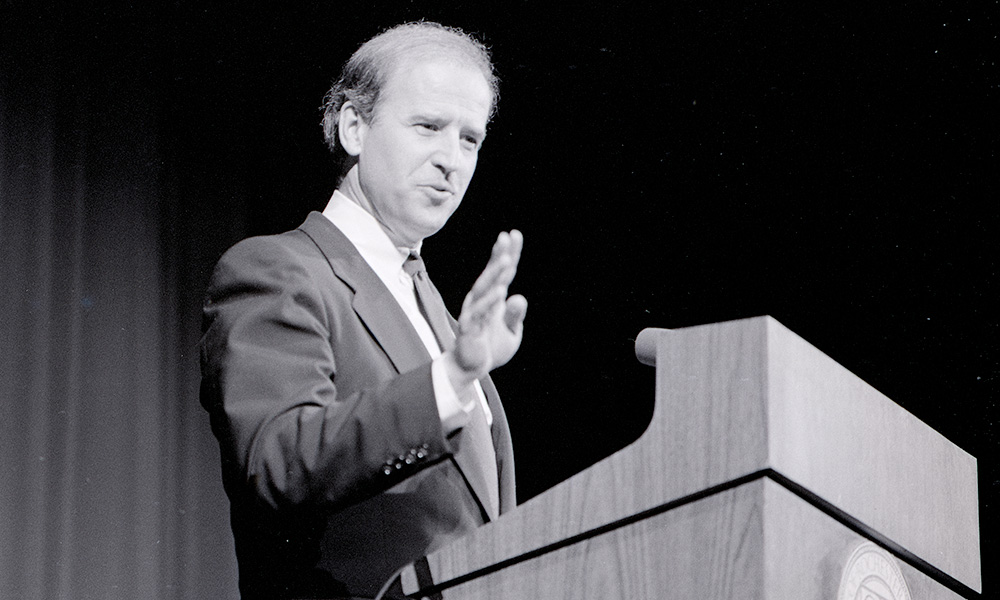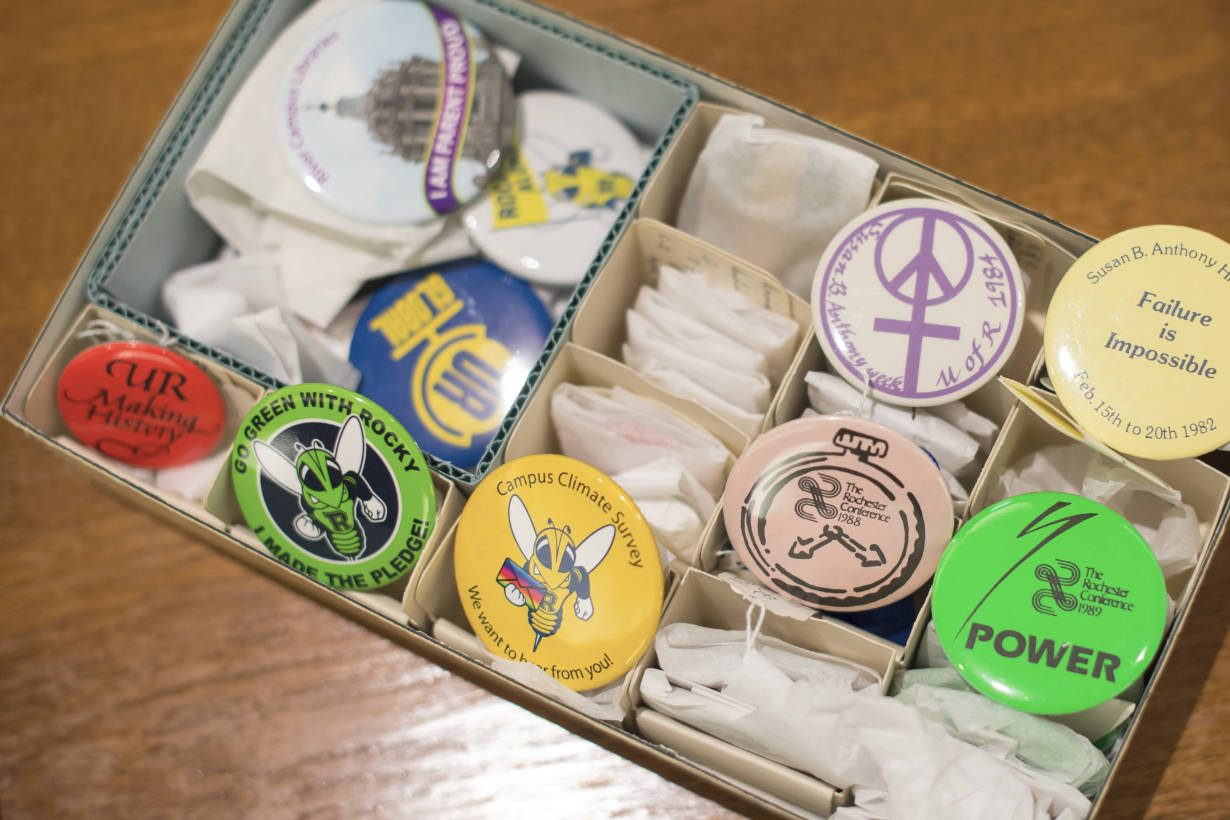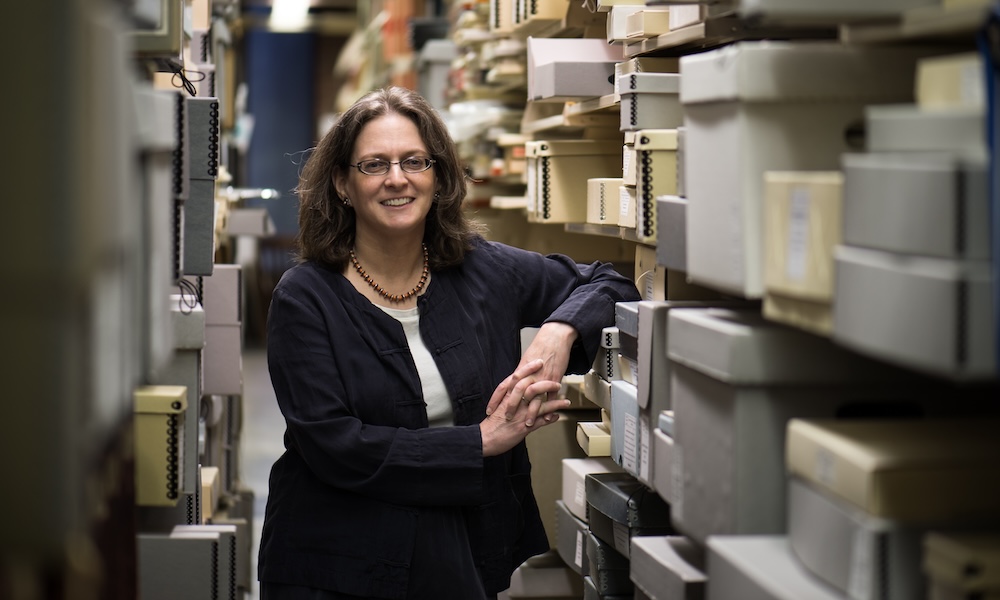A question for Melissa Mead, the John M. and Barbara Keil University Archivist and Rochester Collections Librarian.
I was born at Strong Hospital in June 1944, in the shadow of the River Campus, and I saw Jimmy Carter on campus in the 1970s. Can you tell me how many presidents of the United States have visited the University? Who were they? When did they come? Why did they come? —James Anderson, Rochester
Thirty-two US presidents have held office since the University of Rochester’s founding in 1850. Although quite a number of them have passed through Rochester, as of the writing of this article, only seven future or former presidents actually visited the campuses. Presumptive President-Elect Biden would make eight.
The earliest appears to have been future president Theodore Roosevelt in 1900. He was serving as New York State governor, and the occasion was the celebration of the University’s semicentennial on June 13, 1900. With a speech entitled “Promise and Performance,” Roosevelt was the evening speaker at the Lyceum Theatre, where the event was held—the Eastman Theatre would not open until 1922. A little over a week after his Rochester appearance, Roosevelt would be nominated at the Republican National Convention as President William McKinley’s vice president.
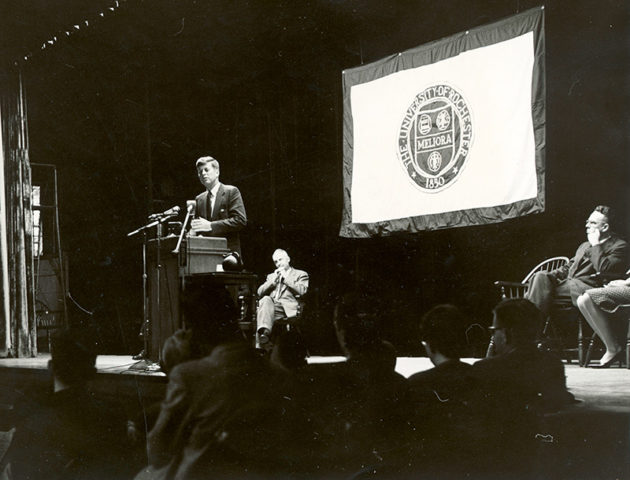
Another 59 years would pass before another future president visited. On October 1, 1959, Senator John F. Kennedy spoke in Strong Auditorium to a standing-room-only crowd of students. While Kennedy was visiting, a future Rochester president, W. Allen Wallis, was working for President Dwight D. Eisenhower to formulate the report of the Cabinet on Price Stability for Economic Growth. When Wallis was inaugurated on May 17, 1963, Eisenhower was the keynote speaker for the ceremony in the Eastman Theatre.
Richard M. Nixon was next: he made several appearances on campus, but most memorably as the 1966 commencement speaker. Initial reports that the former vice president would receive an honorary degree as part of the ceremony caused public protests by students and faculty.
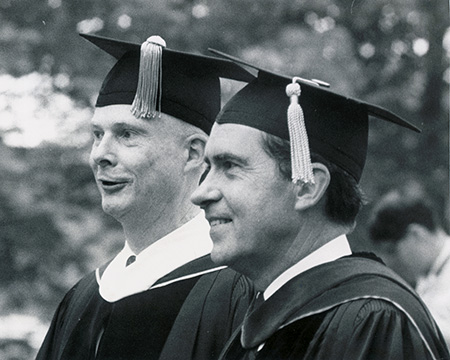
Professor of Philosophy Lewis White Beck stated: “We defend his right to express his opinions as he chooses, but maintain that by honoring him, this university will be grievously compromising one of its most basic ideals,” that of academic freedom. The degree controversy was ended when Nixon claimed that he did not accept honorary degrees. His commencement speech was entitled “Academic Freedom.”
On November 11, 1983, George Herbert Walker Bush was guest of honor—and honorary degree recipient—at the installation of Paul W. MacAvoy as dean of the Graduate School of Management (renamed the Simon School in 1986). The vice president, whose Secret Service detail caused considerable consternation on campus, expounded on the theme “The Prospects for the Manufacturing Industries.” A year later, the vice president was back, and took time out from campaigning to jog with students in Fauver Stadium.
Bill Clinton was the headliner for Meliora Weekend 2011, giving the keynote address and then sitting in conversation with President Joel Seligman.
Not unsurprisingly, many presidential candidates have come to campus as well, whether as part of campaigns or at other points in their careers. They include Thomas E. Dewey (1957); Robert F. Kennedy (1964); Al Gore (2000, and in a Democratic presidential nomination debate at the Eastman Theatre with Michael Dukakis and Jesse Jackson in 1988); Ralph Nader (1984), Gary Hart (1984); Joe Biden (1988); and Hillary Rodham Clinton (2000 and 2004).
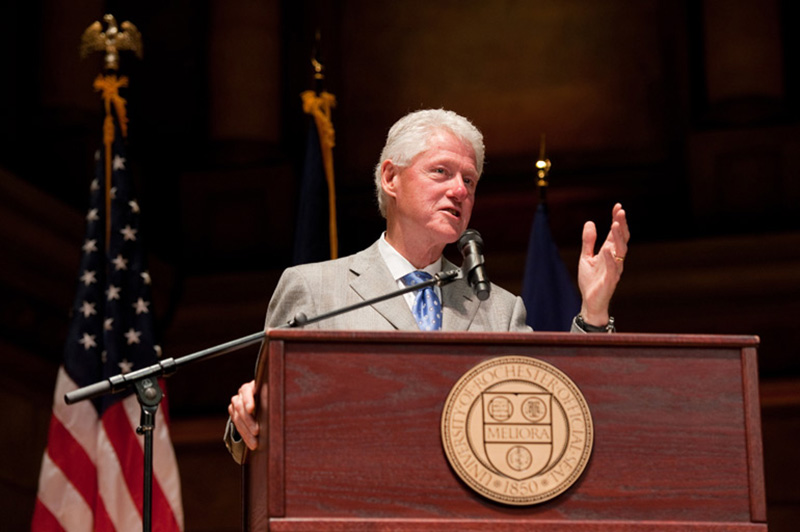
Finally, Jimmy Carter made at least two visits to the University. As a former president he gave the second annual Cameros Family Lecture in the Palestra on October 17, 1983. His address, entitled “Striving for a Just Society,” advocated for human rights as an essential element of American foreign policy.
His first visit, when you likely saw him, was in 1975, when as a candidate for the Democratic nomination, he was invited by the Outside Speaker’s Committee to speak in Hubbell Auditorium. The Campus Times reported that Carter suggested there were “two basic questions asked by the American people. The first is can government be competent? . . . The second . . . [is] can government be decent?” Carter felt the answer to the first question was “yes.” For the second, he noted, “As decent as the American people.”
This installment of “Ask the Archivist” originally appeared in the fall 2020 issue of Rochester Review, the magazine of the University of Rochester.

